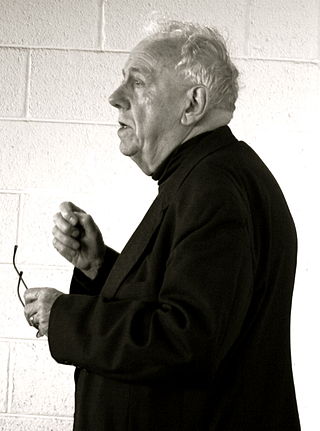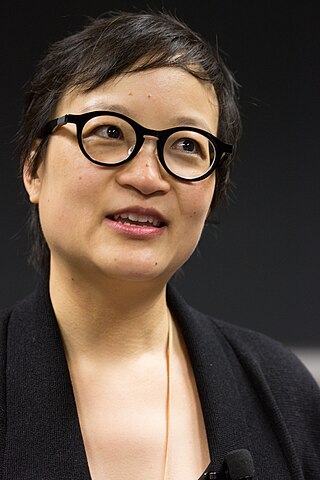Related Research Articles

Virtue ethics is a philosophical approach that treats virtue and character as the primary subjects of ethics, in contrast to other ethical systems that put consequences of voluntary acts, principles or rules of conduct, or obedience to divine authority in the primary role.

Rosalind Hursthouse is a British-born New Zealand moral philosopher noted for her work on virtue ethics. She is one of the leading exponents of contemporary virtue ethics, though she has also written extensively on philosophy of action, history of philosophy, moral psychology, and biomedical ethics. Hursthouse is Professor Emerita of Philosophy at the University of Auckland and Fellow of the Royal Society of New Zealand.

Applied philosophy is a branch of philosophy that studies philosophical problems of practical concern. The topic covers a broad spectrum of issues in environment, medicine, science, engineering, policy, law, politics, economics and education. The term was popularised in 1982 by the founding of the Society for Applied Philosophy by Brenda Almond, and its subsequent journal publication Journal of Applied Philosophy edited by Elizabeth Brake. Methods of applied philosophy are similar to other philosophical methods including questioning, dialectic, critical discussion, rational argument, systematic presentation, thought experiments and logical argumentation.

Alasdair Chalmers MacIntyre is a Scottish-American philosopher who has contributed to moral and political philosophy as well as history of philosophy and theology. MacIntyre's After Virtue (1981) is one of the most important works of Anglophone moral and political philosophy in the 20th century. He is senior research fellow at the Centre for Contemporary Aristotelian Studies in Ethics and Politics (CASEP) at London Metropolitan University, emeritus Professor of Philosophy at the University of Notre Dame, and permanent senior distinguished research fellow at the Notre Dame Center for Ethics and Culture. During his lengthy academic career, he also taught at Brandeis University, Duke University, Vanderbilt University, and Boston University.
Linda Trinkaus Zagzebski is an American philosopher. She is the Emerita George Lynn Cross Research Professor, as well as Emerita Kingfisher College Chair of the Philosophy of Religion and Ethics, at the University of Oklahoma. She writes in the areas of epistemology, philosophy of religion, and virtue theory.
Julia Elizabeth Annas is a British philosopher who has taught in the United States for the last quarter-century. She is Regents Professor of Philosophy Emerita at the University of Arizona.
Alfred I. Tauber is an American philosopher and historian of science, who, from 1993 to 2010, served as director of the Boston University Center for Philosophy and History of Science at Boston University.

Ruth Chang is an American philosopher and legal scholar who serves as the Professor and Chair of Jurisprudence at the University of Oxford, a Professorial Fellow of University College, Oxford, and a professor of philosophy. She was previously a professor at Rutgers University from 1998 to 2019. She is known for her research on the incommensurability of values and on practical reason and normativity. She is also widely known for her work on decision-making and is lecturer or consultant on choice at institutions ranging from video-gaming to pharmaceuticals, the U.S. Navy, World Bank, and CIA.

Virginia Potter Held is an American moral, social/political and feminist philosopher whose work on the ethics of care sparked significant research into the ethical dimensions of providing care for others and critiques of the traditional roles of women in society.

Nancy E. Snow is a professor of philosophy specializing in ethics and the director of the Institute for the Study of Human Flourishing at the University of Oklahoma. Prior to her move to Norman, she was a professor of philosophy at Marquette University. In 2022, she will move to the University of Kansas.
Valerie Tiberius is Professor of Philosophy at the University of Minnesota, an institution she has been affiliated with since 1998. She has published numerous reviewed papers, as well as five books - Deliberation about the Good: Justifying What We Value; The Reflective Life: Living Wisely With Our Limits; Moral Psychology: A Contemporary Introduction; Well-Being as Value Fulfillment: How We Can Help Each Other to Live Well; and What Do You Want Out of Life? A Philosophical Guide to Figuring Out What Matters. Much of her work has taken a practical, empirical approach to philosophical questions, trying to show how these disciplines can improve the world for the better.
Diana Meyers is a philosopher working in the philosophy of action and in the philosophy of feminism. Meyers is professor emerita of philosophy at the University of Connecticut.
Eva Feder Kittay is an American philosopher. She is Distinguished Professor of Philosophy (Emerita) at Stony Brook University. Her primary interests include feminist philosophy, ethics, social and political theory, metaphor, and the application of these disciplines to disability studies. Kittay has also attempted to bring philosophical concerns into the public spotlight, including leading The Women's Committee of One Hundred in 1995, an organization that opposed the perceived punitive nature of the social welfare reforms taking place in the United States at the time.
Marcia Baron is an American philosopher and the Rudy Professor of Philosophy at Indiana University Bloomington. Her main research interests include moral philosophy, moral psychology, and philosophical issues in criminal law. Baron is an associate editor of Inquiry, a member of the editorial board of The International Encyclopedia of Ethics, a series editor for New Directions in Ethics, and a member of the editorial board of the North American Kant Studies in Philosophy.
Holly Martin Smith is Distinguished Professor of Philosophy at Rutgers, the State University of New Jersey. Her publications focus on questions in normative ethics, moral responsibility and structural questions common to normative theories.
Michelle Mason Bizri is an Associate Professor of Philosophy at the University of Minnesota, where she has taught since 2000. She has published numerous works in normative moral psychology, where her main contributions have been to defend the view that particular person-focused, esteem-based attitudes have a significant role to play in moral evaluation.

Barbara Herman is the Griffin Professor of Philosophy and Professor of Law at the University of California, Los Angeles Department of Philosophy. A well-known interpreter of Kant's ethics, Herman works on moral philosophy, the history of ethics, and social and political philosophy. Among her many honors and awards include a Guggenheim Fellowship (1985-1986) and election to the American Academy of Arts & Sciences (1995).
Sandrine Berges is a French philosopher and novelist, currently Professor of Philosophy at Bilkent University. She is known for her works on feminist philosophy, ethics and political philosophy.

Talbot Brewer is an American philosopher and Professor of Philosophy at the University of Virginia. He is known for his works on moral philosophy.
Catriona Alice Mackenzie is an Australian philosopher. She is professor emerita of philosophy at Macquarie University and a Fellow of the Australian Academy of the Humanities. Mackenzie has published in moral and political philosophy, feminist philosophy and applied ethics.
References
- ↑ "Brown Philosophy : Philosophy Faculty" . Retrieved 25 March 2014.
- 1 2 In Praise of Desire: Nomy Arpaly. Oxford Moral Theory. Oxford University Press. 13 December 2013. ISBN 978-0-19-934816-9 . Retrieved 31 March 2014.
- 1 2 3 4 5 Arpaly, Nomy. "Curriculum Vitae" (PDF). Brown University. Retrieved 25 March 2014.
- 1 2 3 4 McConnell, Terrance (January 2005). "Review of Nomy Arpaly's Unprincipled Virtue". Philosophical Books. 46 (1): 87–88. doi:10.1111/j.1468-0149.2005.0358d.x.
- 1 2 Arpaly, Nomy (2003). Unprincipled virtue : an inquiry into moral agency (Paperback ed.). New York: Oxford University Press. ISBN 978-0195179767.
- ↑ Suikkanen, Jussi (June 2006). "Unprincipled Virtue – Nomy Arpaly". Ratio. 19 (2): 261–265. doi:10.1111/j.1467-9329.2006.00324.x.